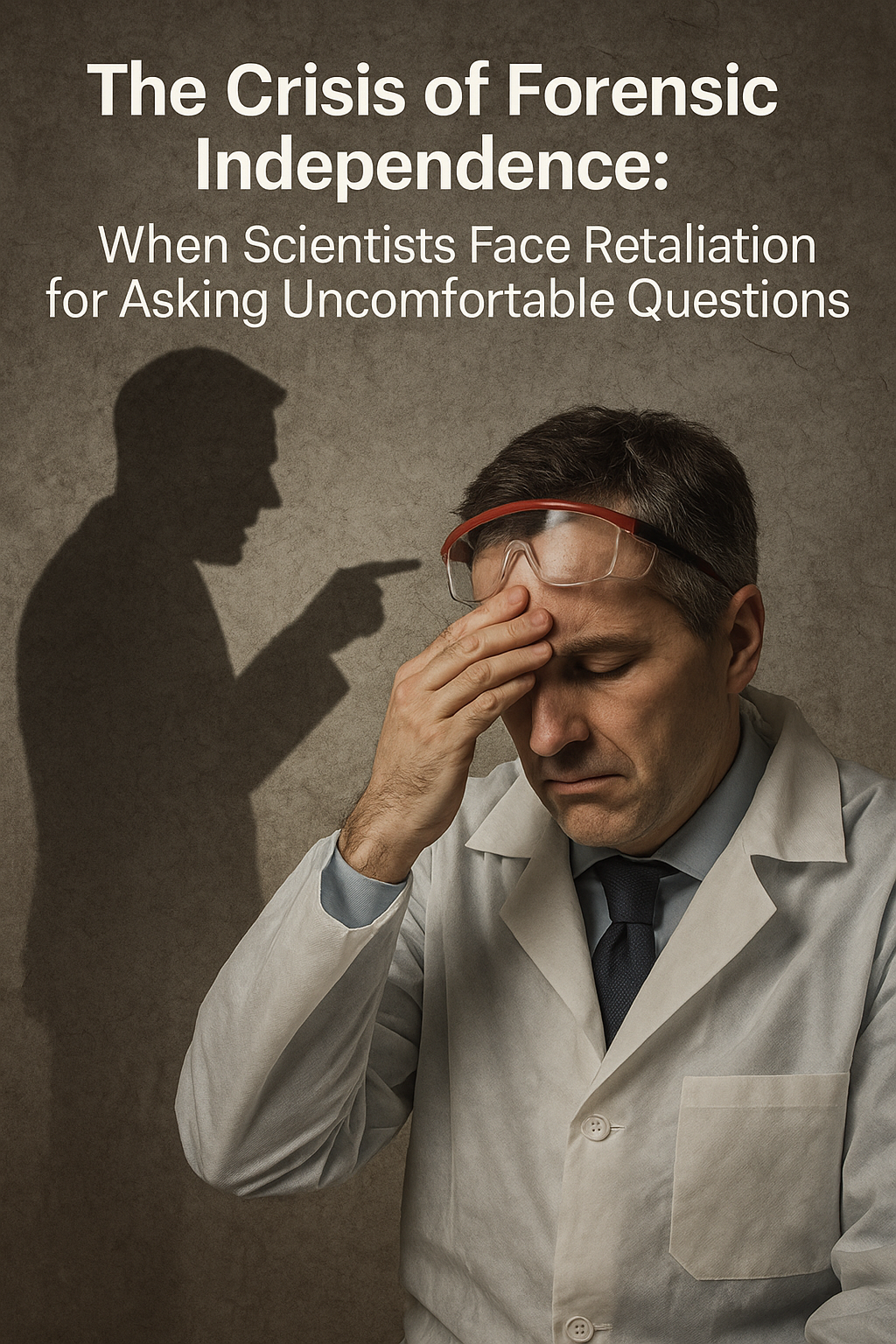 As an experienced Atlanta DUI lawyer, I've spent years challenging forensic evidence in courtrooms across Georgia. From breathalyzer results to blood toxicology reports, the science behind DUI prosecutions often appears ironclad—until you dig deeper. But what happens when the scientists themselves question the system's flaws? A recent editorial in Forensic Science International: Synergy by Aaron Olson sheds light on a troubling pattern: forensic labs embedded in law enforcement structures prioritize institutional loyalty over scientific truth, leading to retaliation against those who dissent. This isn't just an academic issue; it directly impacts the fairness of trials, including DUI cases where flawed testing can lead to wrongful convictions.
As an experienced Atlanta DUI lawyer, I've spent years challenging forensic evidence in courtrooms across Georgia. From breathalyzer results to blood toxicology reports, the science behind DUI prosecutions often appears ironclad—until you dig deeper. But what happens when the scientists themselves question the system's flaws? A recent editorial in Forensic Science International: Synergy by Aaron Olson sheds light on a troubling pattern: forensic labs embedded in law enforcement structures prioritize institutional loyalty over scientific truth, leading to retaliation against those who dissent. This isn't just an academic issue; it directly impacts the fairness of trials, including DUI cases where flawed testing can lead to wrongful convictions.
Olson's piece, titled "Truth, Power, and the Crisis of Forensic Independence," argues that labs under police or prosecutorial control create inherent conflicts. Scientists who expose errors or biases risk professional ruin. For instance, Gregory Ohlson, a toxicologist with Arizona's Department of Public Safety, advocated for full disclosure of batch data in toxicology testing to ensure transparency. When he refused to alter his testimony to fit the agency's narrative, he was forced into early retirement—despite federal recognition that his speech was protected. Similarly, in Vermont, Darcy Richardson reported lab technicians spiking control samples to pass audits; her concerns were ignored, and she left public service, only for courts to later dismiss cases based on those very issues.
The editorial also highlights Bethany Pridgen, former director of the Wilmington Crime Lab in North Carolina, who disclosed mismanagement and missing evidence. Instead of fixing the problems, officials transferred the lab to eliminate her role and tried to discredit her as a witness. And then there's cognitive psychologist Itiel Dror, whose research showed how biases—like a subject's race—affect forensic pathology decisions. Despite his work being cleared of misconduct, he faced demands for retractions, integrity attacks, and formal complaints from the forensic community.
Drawing on historical parallels, Olson compares these modern cases to Galileo's persecution by the Church for challenging doctrine, or biblical stories of defiance against authority. He invokes philosopher René Girard's scapegoating theory: institutions expel dissenters to preserve the "myth" of their objectivity. The 2009 National Academy of Sciences report echoed this, calling for independent labs, but little has changed. In DUI defense, this means challenging state-affiliated labs often invites differential scrutiny—your independent expert's credentials are dissected, while the prosecution's are accepted at face value.
This pattern of punishing uncomfortable questions isn't unique to forensics. In astronomy, Harvard professor Avi Loeb has faced intense backlash for suggesting that interstellar objects like 'Oumuamua (the first detected interstellar visitor in 2017) or the meteor IM1 could be remnants of alien technology. Loeb's hypothesis—that 'Oumuamua's unusual shape and acceleration might indicate artificial origins—sparked outrage, with critics accusing him of sensationalism and bias, despite his rigorous data analysis. More recently, his claims about fragments from IM1 (an interstellar meteor that hit Earth in 2014) being possibly extraterrestrial have drawn similar scorn, with some in the scientific community questioning his methods to protect established orthodoxy. Even discussions around newer objects like 3I/ATLAS have reignited debates, where Loeb warns of potential alien implications, only to be dismissed or contradicted by figures like Elon Musk. Loeb isn't fabricating data; he's asking bold questions that challenge the status quo, much like forensic whistleblowers.
The COVID-19 pandemic offers even starker examples of retaliation against scientific dissent. Doctors and researchers who questioned the safety or efficacy of mRNA vaccines were often silenced on social media platforms. For instance, former Pfizer vice president Michael Yeadon, a key figure in respiratory drug development, raised concerns about vaccine risks and became a target, with his views labeled as misinformation and his online presence curtailed. Author and feminist Naomi Wolf was suspended from Twitter (now X) for tweeting anti-vaccine claims, including unfounded fears about side effects. While some of these claims might have been debunked or retracted, censorship is not the answer but rigorous data driven scientific debate. So caleld "Science" that responds with censorship and repression is religion and not the scientific method or truth seeking. Broader reports highlight dozens of physicians across specialties who spread what platforms deemed harmful misinformation on vaccines, leading to account bans and professional repercussions. A study on censorship of COVID heterodoxy documents how accomplished scientists from various countries faced suppression tactics, from deplatforming to reputational attacks, simply for diverging from the dominant narrative. This mirrors the forensic field's treatment of dissenters: instead of debate, there's expulsion to maintain "consensus."
In my practice at George C. Creal, Jr., P.C., I've seen how this orthodoxy affects real lives. DUI clients rely on me to question forensic results that might stem from biased labs, assumptions or uncalibrated equipment. If scientists fear retaliation, errors go unchecked, and justice suffers. We need reforms like independent oversight, whistleblower protections, and full data disclosure—not just in forensics, but across science. Whether it's a toxicologist exposing lab flaws, an astronomer probing cosmic anomalies, or a doctor scrutinizing vaccine data, protecting dissent ensures truth prevails over power. As Terrence McKenna famously said Modern science is based on the principle: "Give us one free miracle and we'll explain the rest."
If you're facing DUI charges in Atlanta and suspect flawed forensic evidence, contact me today. Let's challenge the system together.
George C. Creal, Jr. is an Atlanta-based DUI attorney with over 25 years of experience defending clients against impaired driving charges.

